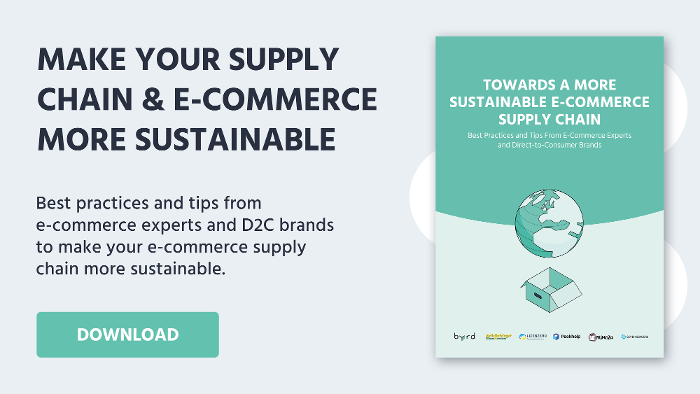Top 10 Essential Certifications and Seals: A Roadmap to Trust in E-Commerce
Table of Content
The e-commerce boom has reshaped retail, opening doors for businesses and shoppers alike. In this dynamic environment, trust and quality assurance are paramount. For e-commerce companies, understanding key certifications for warehouse operations is crucial, just as knowing what seals customers hunt for in their buys. Dive in as we spotlight five essential warehouse certifications and five product seals shoppers prioritize.
Certifications for Product Handling in the Warehouse:
Certifications for product handling in the warehouse ensure that goods are stored, processed, and distributed following specific standards and practices. These certifications are essential to guarantee the safety, quality, and integrity of products. Here are some key certifications for product handling in the warehouse:
HACCP (Hazard Analysis and Critical Control Points):
HACCP certification is a cornerstone for warehouses handling food and beverages. It's a systematic approach to identifying and controlling potential hazards throughout the supply chain. HACCP ensures that products are stored, handled, and distributed in a way that prevents contamination, upholding consumer safety.
HACCP is recognized internationally, making it easier for food businesses to engage in global trade. It provides assurance to international partners that the food safety practices are in line with global standards. Moreover, it is a risk management system. By identifying and controlling potential hazards, it reduces the risk of costly product recalls, damage to brand reputation, and health-related issues for consumers.
ISO 9001 (Quality Management System):
ISO 9001 certification focuses on quality management. It encourages organizations to embrace a culture of continuous improvement. Regular assessments, reviews, and audits help identify areas for enhancement in internal processes. While not specific to any particular product, it is crucial for warehouses looking to enhance efficiency, quality control, and customer satisfaction across all product categories.
By identifying and addressing potential issues early, ISO 9001 helps minimize risks associated with operations. This includes errors, accidents, and other hazards that can disrupt warehousing processes. ISO 9001 is globally recognized. This facilitates trade, as it assures customers that the certified organization adheres to international standards, making it easier for warehouses to expand their operations internationally.
The International Featured Standards (IFS):
Not a food license but a global standard for food safety and quality. IFS is a series of food safety and quality standards recognized internationally. It sets out specific requirements for food manufacturers and suppliers to ensure the safety and quality of their products. Food manufacturers can obtain IFS certification to demonstrate that their products meet these standards, which can be important for building trust with consumers and business partners.
Obtaining IFS certification typically involves a thorough audit of a company's operations and compliance with the relevant standard. Certification can help food businesses demonstrate their commitment to food safety and quality, which is crucial in the food industry to meet regulatory requirements and gain consumer trust.
ADR 1.3 certificate:
An "ADR 1.3 certificate" is a qualification related to the safe transportation of hazardous materials by road in Europe. It certifies that an individual has completed the required training and met the obligations specified in section 1.3 of the ADR regulations, which covers personnel training and safety in the transport of dangerous goods. The certificate ensures compliance with safety regulations and is typically necessary for those involved in transporting such materials. Specific requirements for the certificate may vary by country or region, so it's important to consult local regulatory authorities for details.
BIO/Organic certification:
Organic certification isn't solely the domain of farmers and food producers; it also holds immense importance for warehouses that play a critical role in the supply chain. Warehouses dealing with organic products must adhere to a web of regulations and standards. These legal requirements mandate that organic goods are stored and handled separately from conventional ones. Warehouses, by obtaining organic certification, demonstrate their commitment to complying with these regulations, ensuring that they're well-prepared to meet the legal requirements governing organic products' storage and handling.
Certifications and Seals Customers Look for in Products:
In a rapidly evolving e-commerce landscape, these certifications play a pivotal role in building consumer trust, ensuring product quality, and supporting ethical and sustainable practices. Whether you're managing a warehouse or marketing products to consumers, these certifications are your allies in meeting the diverse needs and expectations of the modern online marketplace.

Fair Trade Certified:
Besides the social element to it, environmental responsibility is yet another compelling reason why customers gravitate towards Fair Trade products. The certification actively encourages and supports sustainable farming and production methods, which have a significantly lower environmental impact. Additionally, these eco-friendly practices often lead to the production of higher-quality products, meeting the preferences of discerning consumers.
Fair Trade Certification ensures transparency throughout the supply chain, an increasingly important consideration for consumers who wish to know the origins and production methods of the products they purchase. This transparency provides assurance that Fair Trade products are ethically sourced and produced, fostering trust between consumers and businesses that uphold these values.
Certified Organic:
In the world of health-conscious consumers, "Certified Organic" is a highly sought-after seal. It assures that products are grown and processed without synthetic chemicals, genetically modified organisms (GMOs), and other prohibited substances, meeting the stringent standards of organic farming. Certified Organic products are not just about buying healthier and better-tasting items. It's a vote for a more sustainable, environmentally responsible, and ethical approach to e-commerce. This choice benefits both individual health and the health of the planet, making it a significant step towards a more sustainable and responsible consumer culture.
The Rainforest Alliance Certified:
It is a globally recognized certification program that holds particular significance for products like coffee, cocoa, and tea. Rainforest Alliance Certified products provide an avenue for ethical consumerism. With consumers increasingly concerned about the origins and impact of their purchases, the certification allows individuals to make choices that align with their environmental and ethical values.
It plays a pivotal role in environmental protection by conserving biodiverse ecosystems and minimizing deforestation. These practices are essential in the context of widespread global concerns about climate change and habitat loss. Moreover, as responsible sourcing becomes increasingly important to consumers, the certification offers an assurance that products are sourced ethically, reflecting respect for both the environment and the people involved in production.
OEKO-TEX Standard 100:
In the world of textiles and clothing, OEKO-TEX Standard 100 stands as a pivotal certification, assuring consumers that the products they purchase are safe for human health. This certification focuses on one primary goal: the absence of harmful substances and chemicals in textile and clothing items, ensuring their safety and well-being. OEKO-TEX Standard 100's significance lies in its rigorous testing and comprehensive evaluation of these products at every stage of their production, from raw materials to the final items that reach consumers.
The essence of OEKO-TEX Standard 100 revolves around the stringent limits and requirements it imposes on a wide range of hazardous substances. These encompass heavy metals like lead and cadmium, as well as harmful chemicals such as formaldehyde and phthalates.
Leaping Bunny:
Leaping Bunny stands as a globally recognized certification program that assures consumers that the cosmetics and personal care products they choose have not harmed animals. This comprehensive certification extends not only to the final products but also to individual ingredients. In essence, Leaping Bunny provides a holistic guarantee of cruelty-free practices throughout a product's entire lifecycle.
Leaping Bunny is not confined to one geographic region, making it a universally recognized symbol of cruelty-free practices. This recognition is essential for consumers who want to support ethical products on a global scale. By choosing Leaping Bunny-certified products, consumers actively support a shift towards cruelty-free practices. Their purchases send a clear message that ethical treatment of animals is a priority.
Conclusion
These certifications are vital for various industries and product categories, ensuring that products are stored, processed, and distributed with the highest standards of safety, quality, and ethics. Warehouses that hold these certifications can provide consumers and businesses with the assurance that their products meet rigorous criteria, ultimately fostering trust and reliability in the brand.
Our warehouse services stand as a reliable ally for businesses seeking to attain and maintain these essential certifications. We provide a seamless platform that empowers e-commerce companies to store, manage, and distribute products with unwavering commitment to quality and responsibility. Our experienced team understands the nuances of certification requirements and ensures that all products, whether organic, HACCP System, Fair Trade, or any other, are handled with the utmost care, in compliance with the highest industry standards.
